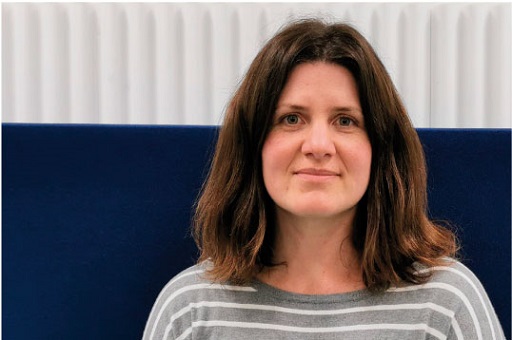3 How literature reviews can shape policy and practice
Case study: Jean Gordon (Effective social work with older people [Tip: hold Ctrl and click a link to open it in a new tab. (Hide tip)] )

I qualified as a social worker in my mid-twenties and since then have had a varied career as a practitioner, practice educator, social work tutor and, more recently, as a self-employed researcher. I’ve worked in residential childcare, schools, hospitals and community mental health, in the third sector as well as Scottish local authorities. Throughout my career I’ve been curious about the basis on which social workers make decisions about whether, how and why to intervene in people’s lives. I’ve also become increasingly aware of the often-slim evidence base that we draw on, and the importance of being able to locate and make sense of accessible, relevant research to inform policy and practice.
In 2005 I had the opportunity to contribute to the development of a new direction for social work services in Scotland. The 21st Century Social Work Review was undertaken in the wake of a major inquiry into the abuse of adults with learning disabilities in the Scottish Borders. The Review Group was asked to take a fundamental look at all aspects of social work and make recommendations about how services should be developed to respond to twenty-first-century challenges for the profession. It commissioned a wide range of research including a review of the evidence base for effective social work with older people, conducted by [the] Social Work Research Centre at the University of Stirling.
(Source: Kerr et al., 2005)
Case study: Julie Hirst (Smoking cessation and pregnant women)

I worked for the NHS for 24 years before transferring to Derbyshire County Council in 2013. My work focused on addressing the social factors that impact on people’s health.
When I conducted my literature review, I was working for the NHS as a public health specialist. I had just inherited the task of reducing the prevalence of smoking in pregnant women in Derbyshire. I knew very little about what worked to help pregnant women quit smoking, so I approached my literature review with an open mind. My initial search terms included ‘smoking’ and ‘pregnancy’. I searched a range of databases including the Cochrane Library, CINAHL, PubMed and NICE. This gave me a huge amount of evidence about the impacts of smoking on the baby and the mother, including the shocking statistic of 40% of infant deaths being attributable to maternal smoking. The results also highlighted some key risk factors for maternal smoking, including relative deprivation, young maternal age and low educational attainment.
I refined my search by adding: ‘effective interventions’ and excluded literature over five years old. This gave me a more useful range of evidence, including a number of systematic reviews and meta-analyses. All the evidence I found emphasised the relatively low success rates for any intervention aiming to help pregnant women to quit smoking. Interventions described included the NHS Stop Smoking Service, counselling, health education, social support and financial incentives. Interestingly, financial incentives emerged as four times as effective as any other intervention (25% versus 6%). One limitation was that all the evidence on financial incentives came from studies in the USA.
(Source: Ierfino et al., 2015)
Case study: Adele Pacini (Mindfulness for later life)

I am a chartered clinical psychologist in the NHS, specialising in later life mental health care, including dementia assessments. I became interested in Mindfulness (NHS, 2018) on a personal level after completing my clinical psychology training, when I found that I was still pretty stressed despite not having the excuse of exams!
I started a daily practice from there, and it has been interesting to think about the practice of mindfulness on a personal level, and also from a theoretical perspective in terms of how it impacts on the mind. I wondered whether the benefits I had observed in my own attention processes would also benefit people with cognitive impairment. I keep up to date with the research literature via email alerts from journals, and I noticed that a good deal of research interest was developing in this area.
